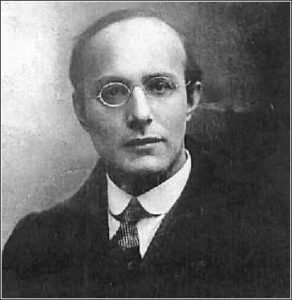In 2014 we celebrate the 50th anniversary of Karl Polanyi’s death. The Hungarian-born Polanyi -who was professor at Columbia University in New York – was the founder of what he called „universal economic history”. He became famous by his book „The Great Transformation” in which he describes the process by which market takes over society and colonizes every segment of the life-world of people. However, he developed economic ideas which are even more important than this.

Polanyi distinguished between the formal and the substantive meanings of the term “economic.” He argued that the formal meaning of “economic” springs from the logical character of the means-ends relationship. From this meaning springs the scarcity definition of economic. Contrary to this, the substantive meaning of “economic” points to the elemental fact that human beings, like all other living things, cannot exist for any length of time without a physical environment that sustains them. This is the origin of the substantive definition of economic. So in the substantive sense “economic” denotes nothing other than bearing reference to the process of satisfying the material needs of the community.
The substantive view of the economy has huge implications for today. It means that cost-benefit calculations cannot decide the rightness of economic activities. Only substantive criteria (namely sustainability and pro-socialness) can garantee that our economic actions are right.
Polanyi also introduced the concept of “fictious commodities”. He described land, labor and money as fictious commodities whose production does not (and cannot) satisfy the laws of supply and demand. Land represents nature, labor represents people and money represents value-measure. These entities are created and destroyed by other laws than that of the market. Any attempt to consider and manage them as commodities simple destroy these primordial entities vital for the functioning of the economy. To sustain nature, people and money we should go beyond the logic of the market.
Finally, Polanyi believed that the true function of the economy is to provide the livelihood of man. Man survives by virtue of an institutionalized interaction between human communities and the natural environment. That process is the economy, which supplies man with the means of satisfying his or her needs. Polanyi teaches us that not money-making but providing sustainable livelihood is the prime duty of the economic man.